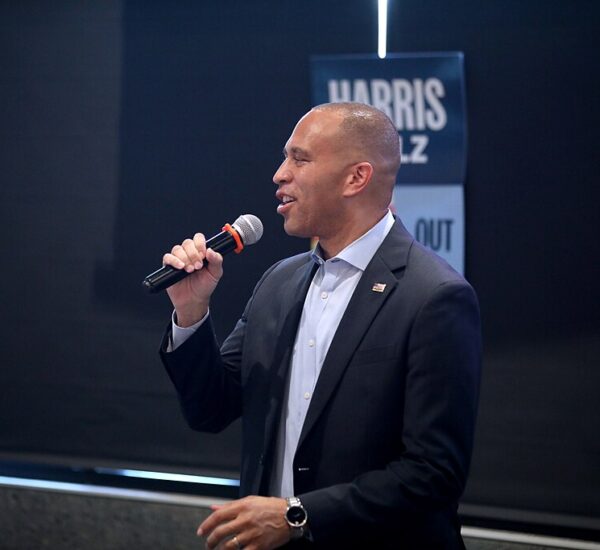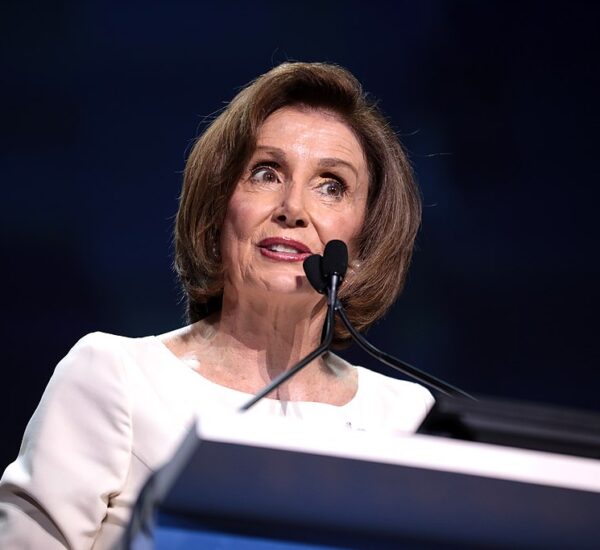GOP Leaves Trump’s Home Frustrated
Speaker Mike Johnson (R-La.) entered this week’s House Republican retreat with the aim of uniting the GOP around a clear strategy to advance President Trump’s agenda. However, tensions have only grown as the retreat concluded, with key divisions emerging within the party.
Rep. Marjorie Taylor Greene (R-Ga.), known for her outspoken criticism of GOP leadership, took to social media early Wednesday morning to vent her frustrations. She pointed out that House Republicans still lacked a concrete plan on budget reconciliation. “Our Speaker and his team have not offered one,” Greene wrote, calling for action and urging lawmakers to “just get started doing something.”
Meanwhile, Rep. Chip Roy (R-Texas), a frequent critic of Johnson’s leadership, skipped the retreat altogether. He chose to spend time with family and constituents in Texas instead of attending a $2,000 event that he argued would offer nothing but more excuses for the nation’s rising deficits and delays in securing Trump’s border funding.
Adding fuel to the fire, the House Freedom Caucus, a group of roughly three dozen hard-line conservatives, issued a direct challenge to the Speaker. They are calling for a more aggressive approach to budget reconciliation that includes deep spending cuts, a two-year debt ceiling increase, and a plan that diverges from Johnson’s more moderate single-bill strategy. The Freedom Caucus presented its “218 Plan” as an alternative that would deliver on President Trump’s promises, including fiscal restraint and border security.
The stakes are high as Republicans hold a narrow majority in the House, and Johnson’s ability to keep the party united will be critical. Any significant division could derail the effort to pass major reforms such as extending the 2017 tax cuts, enforcing stricter border security, and enacting pro-business energy policies. These key items are all on the table for budget reconciliation, a legislative process that bypasses the Senate filibuster but requires near-total Republican unity to succeed.
Johnson’s target is a tight timeline. He aims to pass a budget resolution by the end of February, which would unlock the reconciliation process, and follow up with a sweeping legislative package by early April. This ambitious agenda is putting pressure on the GOP conference, and many members are growing anxious about the lack of a finalized plan.
Rep. Ralph Norman (R-S.C.), a member of the Freedom Caucus, expressed concern that without clear numbers, the GOP risked squandering an opportunity. “There’s a feeling that we’re running out of time,” he said. “We need to come together to get this done.”
While Johnson insists that the plan is coming together, some conservatives like Roy remain skeptical. He has made it clear that any proposal that does not meaningfully reduce deficits is a non-starter for him. “We have to stop kicking the can down the road. We need to rein in spending now,” Roy said in an interview on Fox News.
Despite these challenges, Speaker Johnson is committed to ensuring that any deal remains “deficit-neutral or even deficit-reducing.” This commitment is key to securing the support of fiscal conservatives within the party. However, the Speaker will have to work hard to keep the diverse factions of the House GOP on the same page, especially as the timeline for passing critical elements of Trump’s agenda rapidly approaches.
The road ahead is anything but smooth, but GOP leaders agree that unity is crucial to success. “If we remain united, we are unstoppable,” said House GOP Conference Chair Lisa McClain (Mich.) at the retreat’s conclusion. “President Trump said it himself — if we stay united, we will be remembered as the most successful Congress in American history.”
The question now is whether Speaker Johnson can bridge the gaps within his own party and deliver on the bold promises that Republicans made to the American people in the last election. Time will tell if the party can overcome its internal divisions and deliver a victory for the conservative agenda.






